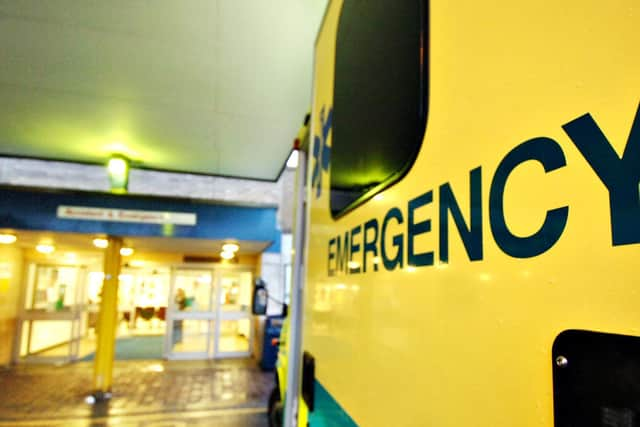Plea by ambulance services to use 999 service wisely as hospitality sector opens up
and live on Freeview channel 276
The Trust has experienced significant spikes in demand from mid-afternoon into the evening as bars and pubs have reopened for people to be able to meet up outside.
The service receives up to 3,000 calls every day in its emergency operations centres, but has seen increased activity now that more people are out and about socialising.
Advertisement
Hide AdAdvertisement
Hide AdNick Smith Executive Director of A&E Operations for YAS, encouraged the public to use the service wisely and warned that unnecessary calls could delay responses to those patients most in need of emergency help.


He said: “We are a busy service, but the easing of lockdown measures has resulted in more calls to alcohol-related incidents, including an increase in the number of assaults. We don’t want to spoil people’s enjoyment in being able to meet with family and friends outside after a long period of being confined to home, but we are appealing to people to look after each other and behave responsibly.
“We’re here 24/7 if people need us and we always prioritise our response to the most seriously ill and injured patients. The public have a really important role to play in knowing when to call 999 and when another NHS service is more appropriate.
“If someone is seriously ill or injured and their life is at risk, you should call 999 immediately. If not, please consider other options such as 111.nhs.uk, your GP or pharmacy.”
Advertisement
Hide AdAdvertisement
Hide AdGenuine 999 calls include chest pain, difficulty breathing, loss of consciousness, severe loss of blood, severe burns and scalds, choking, fitting/convulsions, drowning, severe allergic reaction, heart attack, stroke and major trauma such as a serious road traffic accident, stabbing, shooting, fall from height or a serious head injury